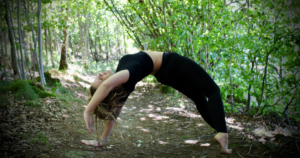Toxic relationships & the path to healing
Reading time: < 7 minute
We should be aware that toxic partners and toxic relationships can have very different manifestations and that toxic relationships usually affect both partners equally. Often there is the role of the perpetrator and the role of the victim, which are always interchanged. We can be in a relationship with a toxic partner who manipulates, humiliates and degrades us, and we can be in toxic relationships where projections of our own hurts are thrown onto the partner. Such relationships often look like there is a constant potential for escalation and both are always lashing out at each other verbally or even physically through uncontrolled outbursts of impulse. There are always arguments and accusations against the partner. Deep-seated hurts are projected onto the relationship partner without the partner being the cause. Through unconsciousness, we do not recognise what is actually behind these triggers. As long as both are not willing to look at their own hurts, such relationships are doomed to fail. Many people desire a relationship with their dual soul without understanding that these relationships are the most difficult and offer the greatest potential for conflict and growth. For some, however, these connections are too painful and end after a short time.
Toxic partners, but also relationships, often leave strong and deep traces in our heart and body system. Marked by feelings of guilt, dependency and deep hurt, we find it difficult to free ourselves from this prison. Even if we have recognised that we are in a toxic relationship, it is not easy to separate, especially if one is afraid of being alone. Often we hold on to this relationship for completely different reasons, like love, because usually such relationships have nothing to do with true love at all, but much more with hurts and patterns from our own childhood.
Toxic partnerships not only rob us of our strength, they make us ill.
Depending on the duration and extent of the toxicity, this can have serious consequences for us. Our self-esteem is undermined to such an extent that we eventually perceive a false reality about ourselves. We become dependent on our partner, become increasingly insecure and develop feelings of guilt that are continuously exploited. Due to the mostly continuous manipulation, we can lose our judgement, which can go so far that we ourselves believe we are mentally ill or suffer from depression.
Not infrequently, the manipulative life partner also involves the circle of friends and tells his story about you so credibly that the friends also get this false picture of you. The aim is to systematically cut you off from your environment because it is then easier to control and abuse you.
The constant devaluation, humiliation, mind games, recurring threats, blaming and silent treatment can lead to post-traumatic stress disorder and panic attacks. Physical illness and anxiety disorders are also common in such associations because we find ourselves in a permanently high stress level. Followed by a strong inner emptiness, numbness, loneliness, fear and/or an almost unbearable pain, we break down more and more inside. Not infrequently, we begin to avoid social contacts, withdraw more and more and avoid any confrontation with our partner. We develop survival strategies that can go as far as dissociation. Likewise, resorting to alcohol and drugs is not uncommon. Our own needs and desires are put aside in order to satisfy our partner.
Due to the trauma bond and the cognitive dissonance, a strong emotional dependence on the toxic partner develops.
People with low self-esteem are particularly at risk of getting caught in a vortex of feelings of dependency and humiliation. A real addiction to such relationships and people develops, as this state is often perceived as normal. In some cases, it even goes so far that people believe they deserve all this and need to repent.
Toxic relationships can also be more subtle and seem harmless. There may be behaviours that at first glance are not perceived as condescending, such as when a partner repeatedly embarrasses or laughs at you in front of friends, but always apologises afterwards and pretends not to mean it. I think we all know them, those couples who really goad each other into pointing out their partner’s dark side when meeting friends. Often people laugh about it, but if we look closer, such behaviour is very hurtful. Our self-esteem gets weaker every time.
What can we do to set ourselves on the path to healing?
First of all, we need to be aware of what these relationships have to do with ourselves in the first place. Toxic relationships are often the result of emotionally abusive relationships that we have already experienced in our childhood. In this toxic relationship, a reenactment of the childhood trauma takes place.
If we can understand here that all these hurts, feelings of guilt, dependencies and humiliations were already present in us before the relationship, we can bring the repressed parts back into our consciousness and work with them. The toxic partner usually only reflects our own repressed and hurt parts that finally want to be seen. This is not an easy insight or justification for such behaviour, but it leads to healing.
The complete break-off of contact is necessary for healing from a toxic relationship to protect you from the abusive person. After the end of a relationship, you need rest and time to process what you have experienced and to recover.
We cannot get well in the environment where we get sick.
People tend to jump from one relationship to the next, but in doing so we only activate our displacement mechanism. Often it is an alternation between perpetrator and victim relationships and we are always in different positions. But if we really want to heal, we have to learn to spend some time with ourselves instead of escaping into partnerships again and again. In this time, one has the opportunity to give oneself one’s full attention and to deal with one’s hurts and inner demons.
It often happens that when we have detached from such relationships, we condemn the partner and do not look at all these hurt parts or even rest on them in the victim attitude. Not infrequently we also start projecting onto others who have nothing to do with it at all; jealousy is a clear sign of an unconscious hurt and a lack of self-confidence and trust.
We must learn to take full responsibility for ourselves and our suffering.
Depending on the severity of the injuries, wounds or traumas, I recommend seeking professional help and support from experienced psychotherapists or trained professionals, because depending on the extent of the traumatisation, we can be retraumatised by certain techniques.
It is important that we first strengthen our resources and foundation before addressing the actual trauma. Mindfulness is particularly valuable and important here, because when we learn to observe and perceive our own behaviour, feelings and thoughts, we get to know our mechanisms and patterns. I cannot show you an individual path for you here, because we people could not be more different, I would have to know your story for that.
In acute traumatic stress disorders, deep relaxation exercises should not be carried out under any circumstances, as these can trigger an unbearable loss of control and even dissociation.
I am not a friend of having mental disorders, traumas or similar “erased” by a healer alone, because we have to learn to understand that only we can heal ourselves. We can certainly use such techniques for support, but to put all one’s hope in healing by a third person only leads to frustration and disappointment.
Working with the inner child is of great importance in relationship issues, as many of our hurts, expectations and behaviours have their origins in childhood and adolescence. The great opportunity now with healing from a toxic relationship is to look a little closer at this point, gain clarity and approach healing the inner child step by step. Learn to know your boundaries and stand up for them, to respect and protect your needs.
Practice self-reflection, compassion and acceptance and learn to take care of yourself.
Become aware of your guilt and work with what is revealed to you.
In new relationships we are faced with the challenge of trust, but we need to engage with this and gradually shed our fear of vulnerability. Especially in new relationships we are often triggered, but if we are conscious enough here we recognise the great potential for growth behind the pain and understand that the partner is showing us a wound. It is important to communicate openly and honestly here. Personal responsibility and mindfulness, coupled with the will to heal, lead us out of the prison of suffering. In addition to working with the inner child, shadow work is of outstanding importance to me, because it is often in interpersonal relationships that our rejected and repressed shadow and light shadow parts show themselves.
Shadow work is a form of personality development in which we deal with the aspects of our personality that we normally repress or hide, such as fears, worries, our anger or sadness. Through this process we learn to deal better with our problems.
Shadow work can be a valuable tool on your way to a self-determined life and a happy, healthy relationship.
Shadow work involves three important steps:
- Recognise your shadow.
- Get to know and understand your shadow.
- Make peace with it and integrate it into your life.
What triggers you most in your life and in your relationships?
What parts and wounds do you want to be seen and heard?
Do you believe that you deserve to be loved sincerely?
“Truthfulness means above all, to be honest with oneself.”
– Ayya Khema
In loving kindness, Shania

Hey, i am Shania
It is a matter of the heart for me to guide people to their shadow in a sensitive way, to let them recognise through self-awareness what is hidden behind their anchored pain and suffering and how they can use these insights for themselves in a healing and transformative way.

Boomland – A journey through the shadows of myself
This blog article is about my own inner journey, boundaries, fears, shadows and the end of a friendship at Boom Festival.

Shadow work – Your path to Wholeness
This blog article is about shadow work, what shadow work is & how we can recognise shadow parts and integrate them into our lives.

I am a nobody & who are you?
This blog article is about the question “Who am I”. I can either be all roles or none of them. Is it really so bad to be a nobody?
